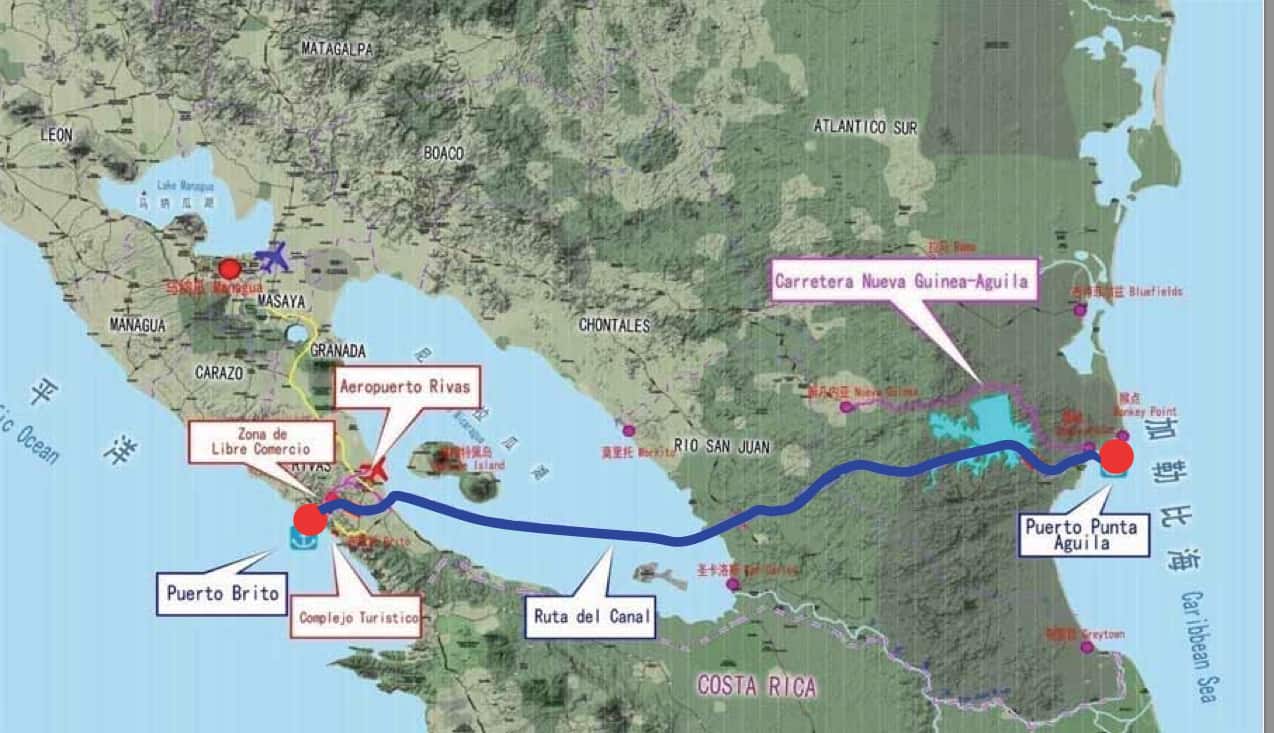The Nicaraguan Canal Idea to Compete with the Panama Canal Surfaces Once More

Daniel Ortega, President of Nicaragua is at it again. The Nicaraguan Canal idea is surfacing once more to try and compete with the Panama Canal. They had so many problems with the local people rebelling against that idea many years ago and halting that Chinese project. And of course Mexico is now in the game as well with a train to take containers overland from one ocean to the other.
The National Assembly of Nicaragua reformed the rules concerning an ambitious interoceanic canal project from 12 years ago and repealed another law that granted its construction and management to a Chinese businessman. The repealed Law 840 had granted, in 2013, the planning, construction, and management of an interoceanic channel, which would compete with the Panama Canal, to the Chinese group Hong Kong Nicaragua Canal Development Investment Co. Limited (HKND Group), owned by Chinese businessman Wang Jing, for a renewable term of 50 years.
In December 2014, the government and the Chinese businessman held an event to mark the beginning of the canal’s construction, but the works never progressed. The reform, proposed by President Daniel Ortega, was unanimously approved by the Assembly, dominated by the ruling party, to “strengthen and update the national legal system, taking into consideration the ever-changing national and international environment,” said the vice president of the Assembly, Raquel Dixon.
The project envisages a canal about 278 kilometers long, with entrances at the Brito River on the Pacific coast and near the mouth of the Punta Gorda River, on the Caribbean. The route would cross Lake Nicaragua, the largest in Central America. The Panama Canal, which handles 6% of global maritime trade, is only 80 km long.
The Nicaraguan canal construction project, valued at about $50 billion, was met with great skepticism regarding its feasibility and doubts about who would finance the work, the damage it could cause to Lake Nicaragua, and how much land needed to be expropriated.
“It is necessary to adapt some laws to face these changes and maintain optimal management within the State of Nicaragua,” Dixon said while reading the bill sent by Ortega to Congress. “Among these changes, it is necessary to adapt Law 800, the Legal Regime Law of the Great Interoceanic Canal of Nicaragua and the Creation of the Great Canal Authority,” according to the text. As part of the reform, the deputies also repealed Law 840 from 2013. The Canal Authority would have a board of six members, but following the reform, it will be headed by a president, a vice president, and a secretary, all government officials, explained Deputy Wilfredo Navarro. “The Directorate of the Authority of the Great Interoceanic Canal of Nicaragua is authorized to coordinate with the competent authorities of the Government of Nicaragua everything related to the planning and operation of the Great Canal of Nicaragua,” says the new law.





